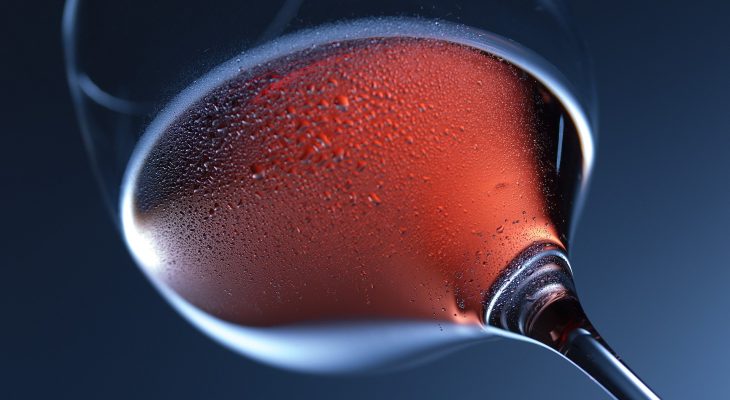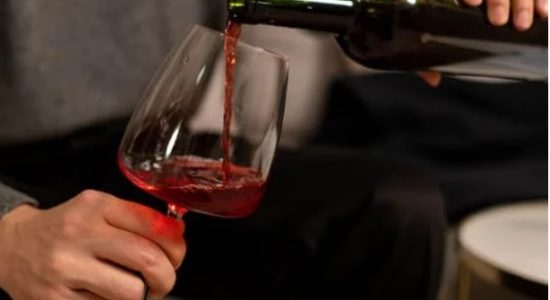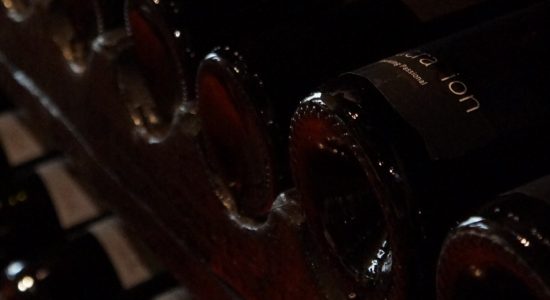Can You Still Use Wine That Turned to Vinegar? (Read This!)

Are you wondering what to do with that open bottle of wine sitting out? When wine is exposed to air, either through opening the bottle or a bad cork, it naturally oxidizes and becomes vinegar. At that stage, it might be too late to drink it, but that doesn’t mean you have to throw it away.
You can still use wine that turned to vinegar. You can drink wine that has gone off but it will have a high acidity level and taste sour or burn your throat. However, you can use it as vinegar for cooking or cleaning.
It’s essential to know the signs that wine has turned to vinegar so you can avoid drinking wine that has gone bad. Read on to understand why your wine turned to vinegar and what you can use it for now.
Why Does Wine Turn to Vinegar?
Wine is made and stored in a special way to ensure air does not enter the bottle. If air does enter, your wine will slowly turn into vinegar. But why exactly does this happen?
Wine turns to vinegar when oxygen combines with alcohol. When acetobacter bacteria from the air get into your wine, it grows and converts the liquid into acetic acid, or vinegar. A beverage with 4% or more acetic acid is considered vinegar.
Given enough air exposure, your wine will turn to vinegar. The time frame depends on several factors, such as the type of wine and storage procedures.
To prevent wine from spoiling, it’s best to store wine in a temperature-controlled environment such as a wine fridge. If you are fermenting your own wine, an airlock may come in handy to avoid contamination.
How Long Does Wine Take To Turn to Vinegar
Wine has a limited shelf life depending on the sugar quantity, alcohol content, and storage procedures. The following table shows how long wine lasts before it goes off or changes in flavor and increases in acidity.
| Type of Wine | How Long It Lasts Open |
| Sparkling Wine | 1-3 days in fridge |
| Light white wine & rose | 5-7 days in the fridge with cork |
| Full-bodied white wine | 3-5 days in the fridge with cork |
| Red wine | 3-5 days in a cool, dark |
| Fortified wine | 28 days in a cool, dark place with cork |
| Bagged Wine | 28 days in fridge |
These time frames depend on proper re-corking methods. If a wine cork is broken or inserted incorrectly, the chances of oxidation increase.
How To Tell if Wine Has Turned to Vinegar
If you are pushing the limits of your wine’s shelf life and want to know if it has gone off, there are some telltale signs you can look out for.
First, note the smell of your wine. If you are still unsure, take a small taste. It may not taste nice, but a small amount of bad wine won’t hurt you.
Sour Smell
Good wine can have many smells, including fruity, floral, citrusy, or earthy. However, when exposed to enough oxygen or acetobacter in the air, it will begin to change to vinegar. When it does, it will start to take on a sour or acidic smell, much like vinegar itself.
Sharp, Acidic Taste
The flavor of wine that has gone off will be acidic. While some wines are meant to have more acidic or sour notes, these will generally be pleasant on the palate. If the acidic flavor is overpowering or you feel a slight burning sensation in your mouth or throat as you drink, the wine has become vinegar.
Can You Drink Wine That Has Turned to Vinegar?
You can still drink wine that has turned to vinegar. While it is unlikely to hurt you, it will not taste the same as when the wine was fresh. It will be significantly more acidic and cause a mild burning sensation in your mouth or throat.
Wine that has oxidized is not the best option for drinking. However, there are many ways you can use it so it does not go to waste, such as cooking or cleaning.
Is It Safe To Cook With Wine That Has Gone Off?
Say you had a couple of glasses of wine, then put the bottle in the fridge or cupboard and have since forgotten. It has probably turned to vinegar by now. While it’s not appetizing to drink, you might wonder if it’s safe for cooking.
Wine that has gone off is safe for cooking. While freshly opened bottles will have flavors typical of wine, a wine that has gone bad increases in acidity and will begin to taste more and more like vinegar. They have different flavors but both can be used for cooking.
If a wine has gone off, you should treat it as vinegar. It may be suitable for marinades, pickling, red wine reduction, or jelly.
How To Use Wine That Has Turned to Vinegar
If a wine has turned to vinegar, it does not necessarily mean you should toss it. Use it like you would a vinegar product!
Cooking
There are several ways to use old wine for cooking. You may use it in marinades or sauces, but it will taste somewhere between wine and vinegar, depending on how long it has gone off. It is best to treat it like vinegar and use it sparingly, so the acidity does not overwhelm the dish.
Cleaning
Vinegar makes an excellent cleaning agent. When wine reaches high enough acidity, it is possible to use it as a disinfecting cleaner. White wines may make the best option due to their light color. Using red wine could cause staining and streaks.
Dyeing Fabrics
Red wine turned to vinegar still maintains its deep red hue, making it possible to use as a fabric dye. Heat leftover wine in a large pot with the fabric for ten minutes. Let it cool and rinse thoroughly. It should result in a light pink or burgundy color.
Insect Trap
Vinegar is an age-old trick used to trap insects. Place vinegar or vinegar mixed with water in a small glass and cover with plastic wrap. Pop some holes in the top for small fruit flies to enter. Fruit flies are attracted to the vinegar, and while they can make their way into the glass, they will get trapped inside.
Final Thoughts
It’s best to drink wine during the first few days after opening it. However, if you’ve left your bottle too long or it’s corked, there’s no need to worry! It may have turned to vinegar, but there are many ways you can still use it.
I wouldn’t recommend drinking it due to the highly acidic flavor, but feel free to use it similarly to vinegar. Sprinkle it over a salad, marinate your meat, or use it as a cleaning or dyeing agent.






